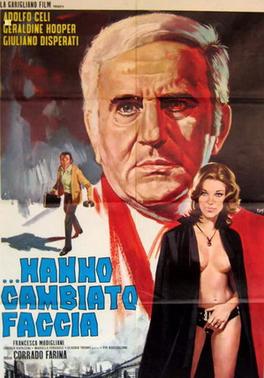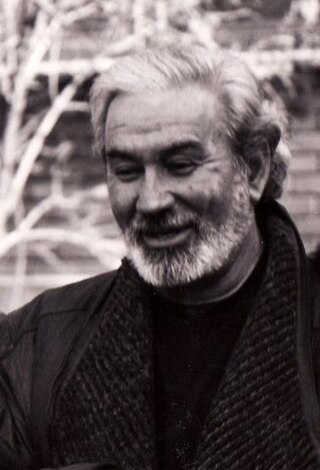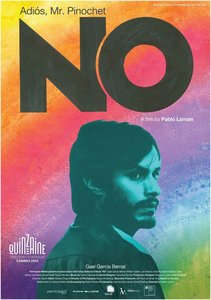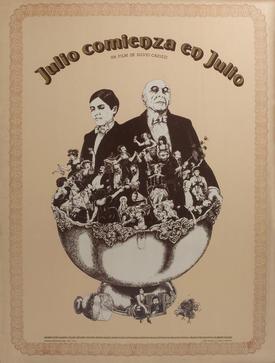
Guillermo Cabrera Infante was a Cuban novelist, essayist, translator, screenwriter, and critic; in the 1950s he used the pseudonym G. Caín, and used Guillermo Cain for the screenplay of the cult classic film Vanishing Point (1971).

The Locarno Film Festival is a major international film festival, held annually in Locarno, Switzerland. Founded in 1946, the festival screens films in various competitive and non-competitive sections, including feature-length narrative, documentary, short, avant-garde, and retrospective programs. The Piazza Grande section is held in an open-air venue that seats 8,000 spectators.

Raúl Ernesto Ruiz Pino was an experimental Chilean filmmaker, writer and teacher whose work is best known in France. He directed more than 100 films.

Paulo Branco is a Portuguese film producer.

Martín Rejtman is an Argentine writer and film director. He is considered to be a key figure in the New Argentine Cinema, making films such as Silvia Prieto and The Magic Gloves. His documentary Riders won the Eurimages Co-Production Development Award at the San Sebastián International Film Festival in 2020.

They Have Changed Their Face is a 1971 Italian horror film directed by Corrado Farina and starring Adolfo Celi. The film won the Golden Leopard award for the Best First Feature at the Locarno International Film Festival in 1971.

Short Sharp Shock is a 1998 film directed by Turkish-German director Fatih Akın.

Chilean cinema refers to all films produced in Chile or made by Chileans. It had its origins at the start of the 20th century with the first Chilean film screening in 1902 and the first Chilean feature film appearing in 1910. The oldest surviving feature is El Húsar de la Muerte (1925), and the last silent film was Patrullas de Avanzada (1931). The Chilean film industry struggled in the late 1940s and in the 1950s, despite some box-office successes such as El Diamante de Maharajá. The 1960s saw the development of the "New Chilean Cinema", with films like Three Sad Tigers (1968), Jackal of Nahueltoro (1969) and Valparaíso mi amor (1969). After the 1973 military coup, film production was low, with many filmmakers working in exile. It increased after the end of the Pinochet regime in 1989, with occasional critical and/or popular successes such as Johnny cien pesos (1993), Historias de Fútbol (1997) and Gringuito (1998).
Tres tristes tigres may refer to:

Nelson Villagra is a Chilean actor, writer and director of stage and screen. He is recognised as one of the most masterful actors in Chilean cinema and is widely known in Chile for his exceptional portrayal of a mentally retarded murderer in Miguel Littín's El Chacal de Nahueltoro (1969). He also collaborated with Raúl Ruiz on Tres tristes tigres (1968), La colonia penal (1970) and Nadie dijo nada (1971).

Delfina Guzmán Correa is a Chilean actress. She has appeared in more than 30 films and television shows since 1968. She starred in the 1968 Raúl Ruiz film Three Sad Tigers. She is the daughter of Florencio Guzmán Larraín and María Luisa Correa Ugarte. Her son, Nicolás Eyzaguirre, is a Chilean economist.

"El Triste" is a song written by Mexican composer Roberto Cantoral. It was performed for the first time on March 15, 1970, at the "Latin Song Festival II" by the Mexican singer José José. El Triste was included on his third studio album.

No is a 2012 historical drama film directed by Pablo Larraín. The film is based on the unpublished stage play El plebiscito written by Antonio Skármeta. Mexican actor Gael García Bernal plays René, an in-demand advertising man working in Chile in the late 1980s. The film captures the advertising tactics in the political campaigns for the 1988 Chilean national plebiscite, when the citizenry decided whether or not dictator Augusto Pinochet should stay in power for another eight years. At the 85th Academy Awards, the film was nominated for the Best Foreign Language Film Oscar.
Alpine Fire is a 1985 Swiss drama film directed by Fredi M. Murer. It won the Golden Leopard at the 1985 Locarno International Film Festival. The film was selected as the Swiss entry for the Best Foreign Language Film at the 58th Academy Awards, but was not accepted as a nominee.
Inti Briones Arredondo is a cinematographer and film producer. He is known for his work in various media formats, media digital video and motion picture film. In 2013, he was named as one of Variety Magazine's "10 Cinematographers to Watch.". His work has been noted for the sensitivity with which he approaches both rural and urban locations in different parts of the world. He has worked with Chilean filmmakers such as Raúl Ruiz, José Luis Torres Leiva, Cristián Jiménez, Alejandro Fernández Almendras and Dominga Sotomayor Castillo. Briones grew up in Lima with his Chilean mother, Sybila Arredondo, widow of José María Arguedas. At the age of 15, in Peru, he entered the Armando Robles Godoy Film and Television School. In his early 20's, he moved to Santiago, Chile; although he had already taken film courses in Peru and workshops in France, he was determined to study with Héctor Ríos Henríquez, director of photography of El chacal de Nahueltoro.

Luis Alfonso Alarcón Mansilla, popularly known as Lucho Alarcón, was a Chilean actor, theatre director, and activist with a distinguished film, television, and stage career.

Julio comienza en julio is a 1979 Chilean coming-of-age period film directed by Silvio Caiozzi and written by Gustavo Frías. It is one of the few Chilean feature films made and released in the first decade of the Pinochet dictatorship.

Jaime Patricio Vadell Amión is a Chilean film, theatre and television actor. He is one of the most recognisable faces in Chilean telenovelas and cinema, having played key roles in films directed by Raúl Ruiz, Silvio Caiozzi and Pablo Larraín.

Tres tristes tigres, abbreviated as TTT, is the debut novel by Cuban writer Guillermo Cabrera Infante. The novel was first published in Spain in 1967. It was later translated into English by Donald Gardner and Suzanne Jill Levine and published in 1971 as Three Trapped Tigers.
Three Tidy Tigers Tied a Tie Tighter is a Brazilian drama film, directed by Gustavo Vinagre and released in 2022. The film centres on three young queer people in São Paulo who are exploring the city, against the context of a viral pandemic that infects the brain and impairs memory.
















